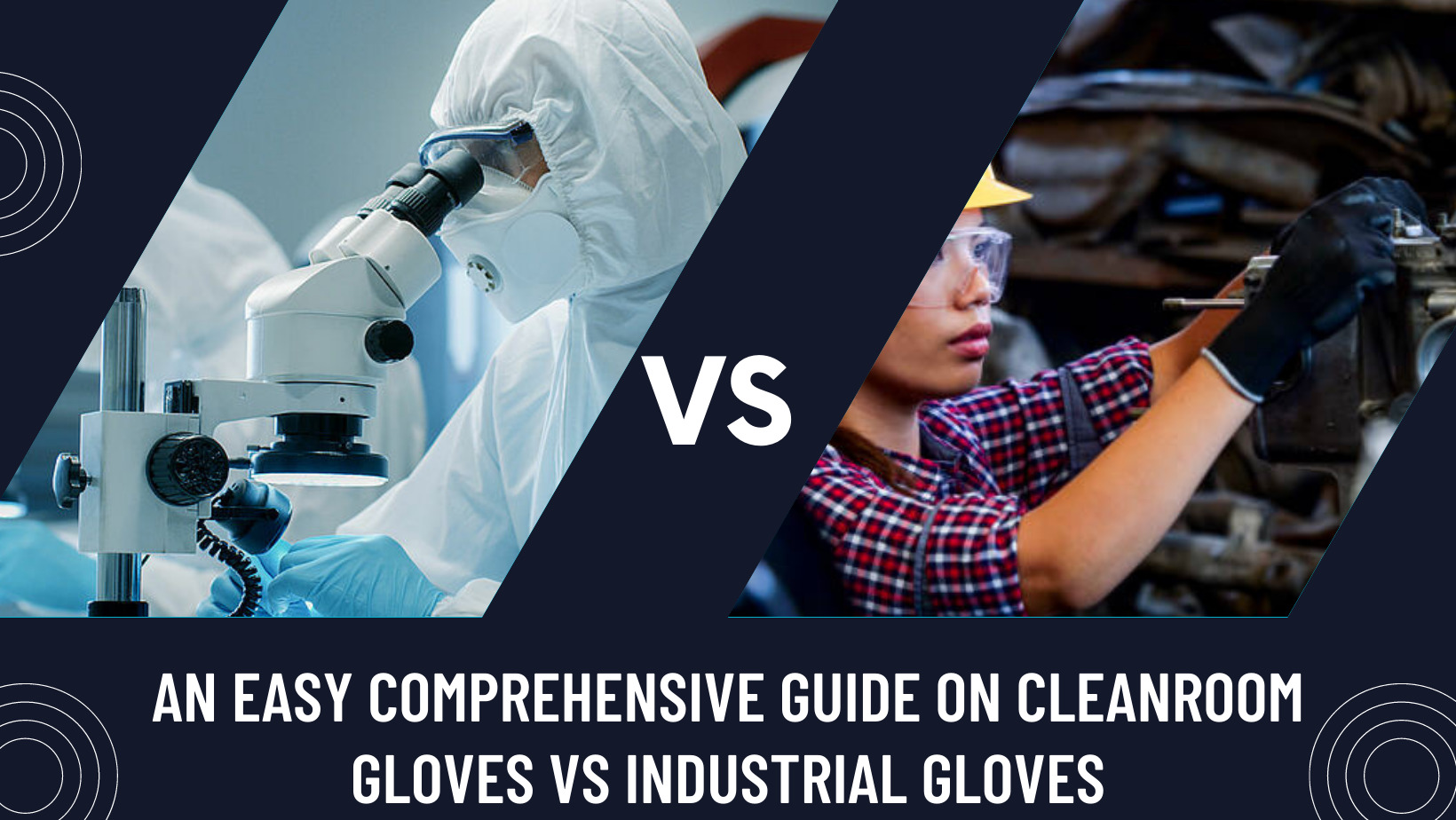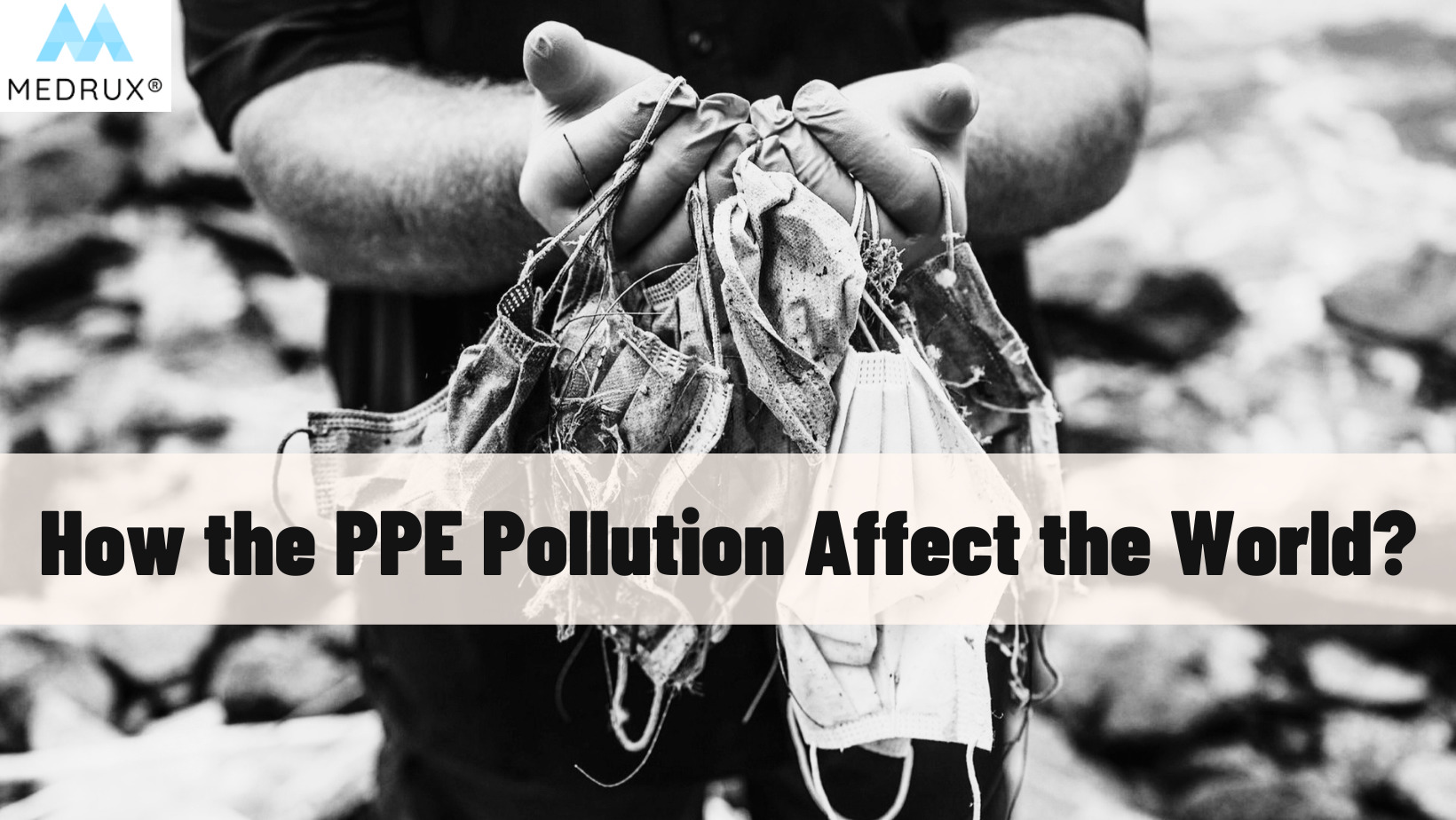I was out in the public restroom one day, and a mother was changing her baby in the changing station and wearing diaper-changing gloves.
Which got me thinking about the number of germs that could be found in babies’ poop!
Not that I think about it occasionally.
It looked all natural to me because why would someone want to have babies’ feces all over their hands?
Surprisingly, she was all given a look of “What a shame” by other mums who were doing the same but barehanded.
And I realized that many parents prefer not to use diaper-changing gloves.
“I needed to understand why and if there was some reason behind it?”
When I asked a few of my friends about it, some said they only use it when things are messy, very stinky, or when the babies have rashes and need to apply ointments.
Others said you would need a lot of gloves per day to do so, so they just prefer a good hand wash.
But, thankfully, the majority of them said they do!
And trust me, after reading this, you will undoubtedly change your mind about not wearing diaper-changing gloves.
What’s more surprising is that nowadays, some moms also use masks to be sensitive to bad smells.
I can imagine my mum and older generations looking at me with that grumpy look of “grow up, it’s just poop” when I do this with my future babies, and I’m sure you had the same experience with your mum or grandmother, for instance.
Well, don’t let them discourage you!
You are doing your baby and yourself a great favor wearing those magical diaper-changing gloves.
So, if you’re a parent asking whether or not to buy a box of diaper-changing gloves, I’m here to tell you, please do. You’ll need them.
You chose the right article because,
after doing an extensive search on the matter, let me tell you why by answering the following questions.
- What are diaper-changing gloves?
- Why do you need to wear gloves while changing diapers?
- What other settings and things can you use changing diaper gloves in?
- What are the best diaper-changing gloves out there?
- Important things to remember when putting on diaper-changing disposable gloves
What are diaper-changing gloves?
It seemed plain logical to me. There had to be baby diaper-changing gloves because poop is disgusting.
Diapers are always full of unpleasant surprises, especially for new parents who most probably deal with them for the first time.
For instance, babies poop all the time; newborns can undergo eight to ten diaper changes in a single day.
Sometimes wipes will not be able to face the exploding diapers.
You’ll need more weapons and be well prepared to face the stuffed diaper.
That’s where diaper-changing gloves come to save you.
Diaper changing gloves are sometimes known as incontinence gloves.
Why?
Because they are used to protect you or caregivers when managing and cleaning incontinence.
They’re lightweight, and you can easily have them in your diaper bag.
You must have seen the question, but do you need to wear diaper-changing gloves?
Let’s see
Why do you need to wear gloves while changing diapers?
OSHA requires childcare workers to wear medical-grade gloves whenever they come into contact with blood-contaminated bodily fluids. At the moment, all states are urging that workers wear gloves when changing diapers.
Why?
Many diseases can be transferred through fecal matter, such as:
- Campylobacter
- Cryptosporidiosis
- E. coli
- Hepatitis A
- Rotavirus
- Salmonella
- Shigella
If you don’t wash your hands well enough, such organisms could be transmitted to your food through the fecal-oral route, causing you infections and diseases.
And to be honest, these are not the best things to catch; they sometimes get severe and can be very disturbing.
Moreover, washing your hands is not enough because you don’t know which kind of fecal matter will remain hidden beneath your fingernails.
Diaper-changing gloves keep your hands clean, dry, and free of germs.
Likewise, if you’re working as a babysitter or in a daycare, you probably understand how crucial it is to wear diaper-changing gloves.
Wearing diaper change gloves can prevent the germs from moving from one baby to another.
How so?
If you change one baby to another, the second baby won’t pick up the infection unless he gets the stool on his skin and then transmits it to his mouth.
Since babies often touch their diaper area and put their hands in their mouths, it’s easy for them to transmit germs from one area to another.
Some of my friends who work in daycares or homecare centers told me that they didn’t use gloves when they started, but once they did, they noticed they weren’t getting sick nearly as often.
After all, these babies aren’t yours, and you don’t know which baby could have an infection, contagious condition, or worse, such as HIV or clostridium difficle.
Or, the other way around, you could have some disease or skin condition that could affect the baby’s health.
Indeed, your hands can have cuts, bruises, or tears from working in your kitchen, garden, garage, or other places.
So, it’s not the wisest thing to do to expose these wounds to fecal matter because you don’t know which pathogen will move into your blood through these tiny open wounds.
Moreover, you don’t want to infect the baby if your wounds are infected already.
In conclusion;
it’s not just about keeping your hands clean and dry; it’s about keeping both yourself and the infant or child under your care safe and healthy.
Diaper-changing gloves provide a barrier between your hand and the delicate skin of babies.
Accordingly, they keep your baby dry, clean, healthy, and, at the same time, protected.
More importantly, they keep your hands clean and void of any dirt that could be trapped under your fingernails.
Consequently, keeping microorganisms, bacteria, viruses, and infections associated with them away.
Nevertheless, you must not confuse wearing diaper-changing gloves with skipping the hand wash after.
You must always wash your hands after changing a baby, whether you wear gloves or not.
What are the best diaper-changing gloves?
Choosing suitable diaper-changing gloves will save you a lot of time and money and help keep you and your baby healthy.
It’s essential to select the correct size that will fit comfortably around your finger to handle the task quickly and easily.
Avoiding the larger size that becomes floppy around your hand because it will make you lose dexterity and could also let it the things you are trying to avoid.
On the other hand, a small glove that is too tight will be uncomfortable and might be vulnerable to tearing off while moving your fingers!
Although latex diaper changing gloves are known for their durability and flexibility, they are not recommended.
Why?
Because you never know which baby may be latex allergic.
Additionally, either you or the baby could develop an irritation or a latex allergy due to the frequent use of latex gloves.
I did some research to find out what most parents prefer. Here’s what I found.
-
Disposable Mitten-Shaped Wet Wipes
These are a special kind of unscented wet wipes shaped like mittens. These diaper-changing gloves are perfect for sensitive babies’ skin.
Why?
Because they’re made with hypoallergenic, fragrance-free materials.
They’re multifunctional; you can use them to change a baby’s diaper, wipe a potty-trained toddler’s bottom, or for personal use and cleaning.
They’re also great for elderly people.
Furthermore, they are easy to use because they come in a pouch package where you can just pull them out.
However, they’re not biodegradable or flushable and are a bit pricey for a ten-piece packet.
-
Nitrile Gloves for Examination
Nitrile gloves are the best option out there. They have become trendy in the childcare and daycare industries.
Although they cost a little more than vinyl and latex diaper changing gloves, they feature excellent properties such as puncture and cut resistance.
So, you do not have to worry about accidentally tearing part of the glove and coming into contact with bodily waste.
Additionally, nitrile gloves are highly flexible with excellent tactile sensitivity.
What’s more, they have a non-slip textured fingertip, making them perfect to handle your moving baby if they decide to roll off the changing table, for example.
They are better-fitting than vinyl gloves, offering better control.
However, this form-fitting can make them more challenging to take on and off quickly.
They’re powder-free and latex-free.
-
Disposable Vinyl Gloves for Examination and Diaper Changing
These cost-effective latex-free diaper changing gloves are every parent’s favorite.
With many sizes available and in a box of 100 gloves, you needn’t worry about the multiple diaper changes you will go through during the day.
Vinyl examination gloves protect against many body fluids and work perfectly well as diaper-changing gloves.
Moreover, they are used for many purposes, such as elder care, preparing food, simple cleaning, and dental tasks.
Although vinyl might be less durable, flexible, and stretchable than other materials used for gloves, they are great for diaper changing.
They’re hypoallergenic and latex-free, so they’re very suitable for sensitive skin and if you or your baby have a latex allergy.
Although vinyl gloves are the most economical solution, they are not an environmentally friendly option.
To summarize;
latex gloves are comfortable, durable, and highly protective. However, they’re not the perfect choice for diaper-changing gloves because of the possibility of latex allergies.
If you are looking for a cost-effective material, your best option is vinyl gloves.
They will provide essential protection but are not that durable or biodegradable.
Meanwhile, if you’re willing to pay a little extra, we highly recommend using nitrile diaper changing gloves. They’re highly durable, comfortable, and protective.
No matter the type of glove you select, you should know a few things before using them.
What other settings can you use changing diaper gloves in?
If you decided not to wear diaper-changing gloves with your child, you could also need them to do some other tasks, such as:
-
Putting on the diaper cream
Some people don’t like to get their hands sticky with creams and ointments used for nappy changing, so diaper-changing gloves can help keep their hands dry and clean.
-
Washing and disinfecting the diaper changing areas
You may need to change your baby in a public baby changing station or in the toilet of a restaurant or another place where you’re unsure how clean and sanitized it is.
So, you must wear gloves to clean the changing area before putting your baby down for a change.
-
Washing and disinfecting the toilet after potty training goes wrong
Your child might need a quick wipe after potty training, or you might need to clean the place if things didn’t go as expected, if you know what I mean.
-
Daycare center duties
Diaper-changing gloves protect against body fluids from different things when looking after a child, Such as feeding children, sneezing, wiping and blowing noses, and in playrooms with objects that children drool on and put in their mouths.
-
Elderly adult care centers
Diaper-changing gloves can be of great help in homecare centers and hospitals.
As people grow older, they might have incontinence. Your job might involve changing an adult diaper or helping them change it.
So you’ll need to wear diaper-changing gloves.
Important things to remember when putting on diaper-changing disposable gloves
- You should put them on before touching soiled clothing or diapers.
- Once the disposable glove you are wearing gets contaminated with dirt, ripped, or torn, you must change it immediately.
- You should use a new pair for each nappy change.
- Wash your hands before putting on the gloves to remove as many germs as possible from your hands and not contaminate the rest of the box.
- You should wash your hands after removing the diaper-changing gloves!
- Dispose of the dirty gloves properly.
- You should remove them before touching clean diapers or surfaces.
In conclusion;
Diaper-changing gloves protect both you and the baby from being vulnerable to dirt and germs, which means using them is highly recommended.
Whether you go for the mitten wipes, vinyl gloves, or nitrile ones, make sure you select the right size.
Additionally, use them carefully and dispose of them properly.
By now, I hope you’ve changed your mind about using diaper-changing gloves.
Feel free to send us if you have further questions. Stay clean and keep your baby’s butt cleaner.







